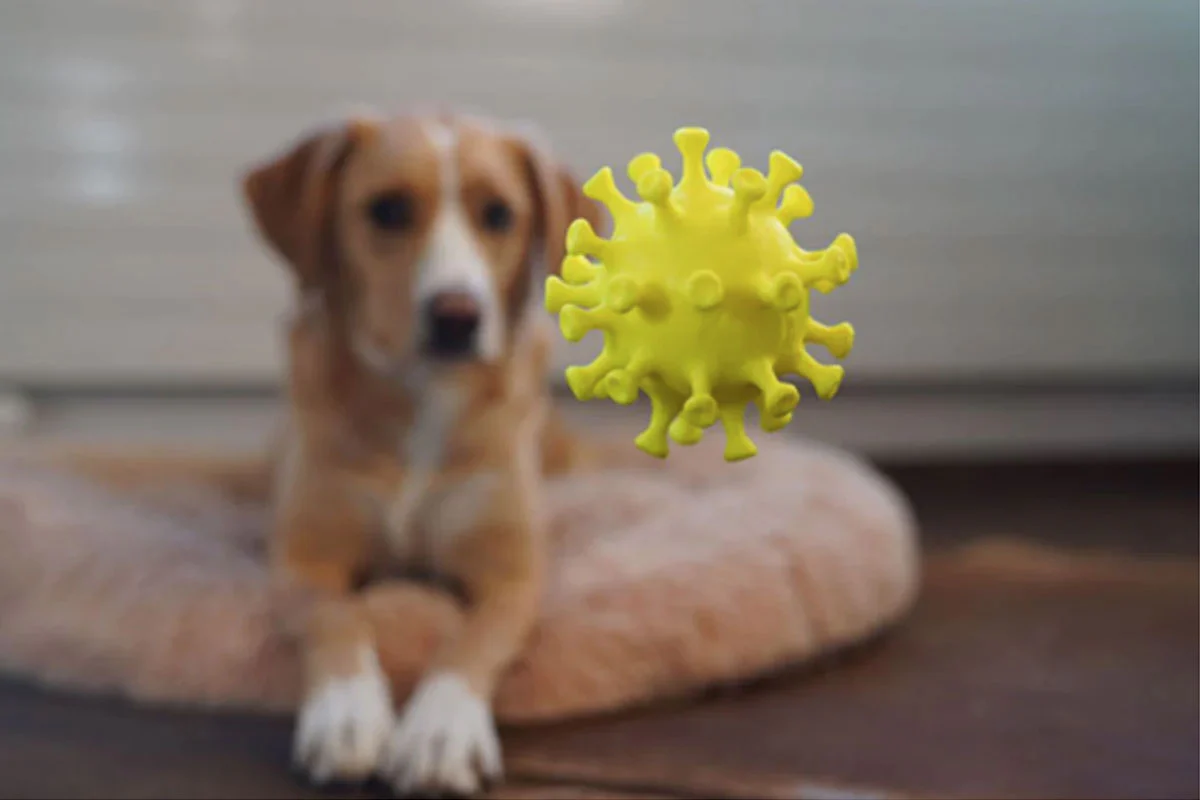Strong immune system helps protect your dog from a wide range of illnesses and diseases, allowing them to live a happy and active life. In this comprehensive guide, we will explore effective strategies and techniques to boost your dog immunity, providing essential insights and tips to enhance their overall health and well-being. Whether you are a new or experienced dog owner, implementing these suggestions will go a long way in safeguarding your beloved pet’s immune system.
Understanding the Importance of a Strong Immune System in Dogs
A strong immune system is crucial for dogs to maintain optimal health and ward off various diseases and infections. Just like humans, dogs have an immune system that acts as their defense mechanism against harmful pathogens, bacteria, viruses, and other foreign substances that can make them sick. Understanding how the immune system works and the factors that can weaken it is essential for dog owners to ensure their furry friends’ well-being.
How the immune system works in dogs
The immune system in dogs is a complex network of cells, tissues, and organs that work together to protect their bodies from harmful invaders. It consists of two primary components: the innate immune system and the adaptive immune system.
The innate immune system is the dog’s first line of defense. It includes physical barriers like the skin and mucous membranes, as well as various cells and proteins that quickly recognize and neutralize potential threats. This part of the immune system provides immediate protection against common pathogens.
On the other hand, the adaptive immune system is responsible for mounting a more targeted response to specific pathogens. It involves the production of antibodies and specialized immune cells that can recognize and remember specific pathogens, providing long-term immunity. The adaptive immune system is what allows dogs to develop immunity to certain diseases after exposure or vaccination.
Common factors that can weaken a dog’s immune system
While dogs have a remarkable immune system, various factors can weaken it and compromise their overall health. It is important for dog owners to be aware of these factors to take appropriate measures and support their pets’ immune systems. Some common factors that can weaken a dog’s immune system include:
- Age: Puppies and senior dogs have less developed or declining immune systems, respectively, making them more susceptible to infections and diseases.
- Poor nutrition: A balanced diet is crucial for maintaining a strong immune system. Nutritional deficiencies or feeding low-quality, processed foods can impair the dog’s immune response.
- Stress: Just like humans, dogs can experience stress, which can negatively impact their immune system. Stressors such as changes in routine, loud noises, or separation anxiety can weaken their defense mechanisms.
- Lack of exercise: Regular physical activity not only keeps dogs fit but also helps in boosting their immune system. A sedentary lifestyle can lead to a weakened immune response.
- Environmental factors: Exposure to toxins, pollutants, and harsh chemicals in the environment can compromise a dog’s immune system over time.
- Underlying health conditions: Dogs with underlying health issues such as autoimmune diseases, allergies, or certain infections may have weakened immune systems.
Understanding these common factors can help dog owners identify potential threats to their pets’ immune system and take appropriate preventive measures. By providing a balanced diet, regular exercise, minimizing stress, and ensuring a safe environment, dog owners can actively contribute to strengthening their furry companions’ immune systems and promoting their overall well-being.
Signs of a Weak Immune System in Dogs
Frequent infections and illnesses
A weak immune system in dogs can lead to a higher susceptibility to infections and illnesses. If your furry friend is frequently falling ill or suffering from recurring infections, it may be indicative of a compromised immune system. Dogs with weakened immunity may catch common colds more often or develop urinary tract infections easily. Keep an eye out for any signs of illness, such as coughing, sneezing, diarrhea, or vomiting, as these could be red flags for a weakened immune system.
Slow wound healing
Another sign that your dog’s immune system may be weak is if their wounds take longer than normal to heal. A strong immune system aids in the rapid healing of cuts, scrapes, or surgical incisions. However, if your dog’s wounds seem to linger or show no signs of improvement, it may suggest that their immune system is not functioning optimally. Prolonged wound healing can also increase the risk of infections, so it’s crucial to consult a veterinarian if you notice this issue.
Allergies and skin issues
Dogs with weakened immune systems are more prone to allergies and skin problems. If your canine companion frequently scratches, licks their paws excessively, or develops rashes, it could be a sign of an immune system imbalance. Allergies can manifest as itching, redness, or inflammation on the skin, and they may result from an overactive or underactive immune response. Consulting with a veterinarian can help determine the underlying cause and provide suitable treatment options.
Remember, recognizing the signs of a weak immune system in your dog is essential for their overall health and well-being. If you notice any of these symptoms, it’s crucial to seek professional advice to ensure the appropriate steps are taken to strengthen your dog’s immune system and enhance their quality of life.
Ways to Boost Your Dog Immunity
Proper nutrition and balanced diet
A key factor in strengthening your dog’s immune system is providing them with proper nutrition and a balanced diet. Make sure to feed them high-quality dog food that is rich in essential nutrients, vitamins, and minerals. Include foods that are known to boost immunity, such as lean meats, fish, fruits, and vegetables. Avoid feeding your dog excessive amounts of treats or table scraps as they can be detrimental to their health.
Regular exercise and physical activity
In addition to a nutritious diet, regular exercise and physical activity play a crucial role in enhancing your dog’s immune system. Engage in activities that promote movement and stimulate their muscles, such as daily walks, playing fetch, or even swimming. Regular exercise not only keeps your dog physically fit but also helps improve blood circulation and overall well-being.
Supplements and immune-boosting foods
Supplements and immune-boosting foods can provide an extra boost to your dog’s immune system. Consult your veterinarian to determine if your dog requires any specific supplements that can enhance their immunity. Additionally, include foods known to have immune-boosting properties in their diet, such as blueberries, pumpkin, sweet potatoes, and yogurt. These foods are rich in antioxidants and vitamins that can support their immune system.
Reducing stress and providing a healthy environment
Stress can have a negative impact on your dog immunity system. It is crucial to create a healthy and stress-free environment for your furry friend. Provide them with a comfortable and safe space where they can relax. Avoid exposing them to excessive noise, aggressive interactions, or situations that may cause anxiety. Regular veterinary check-ups and vaccinations are also essential to ensure your dog’s overall health and well-being.
By following these strategies, you can actively contribute to strengthening your dog’s immune system. Remember, a healthy immune system is crucial for your dog’s ability to fight off diseases and maintain optimal health.
The immune system plays a crucial role in keeping our furry friends healthy and protected against diseases. By implementing a few simple strategies and making some adjustments to our dogs’ lifestyle and diet, we can effectively strengthen their immune system. From providing a balanced and nutritious diet to ensuring regular exercise and minimizing stress, these steps can go a long way in boosting our dog immunity. Additionally, incorporating immune-boosting supplements and maintaining regular veterinary check-ups are essential. With a strong immune system, our dogs can lead happier, healthier, and longer lives. So, let’s prioritize their well-being and take proactive steps to strengthen their immune system.







